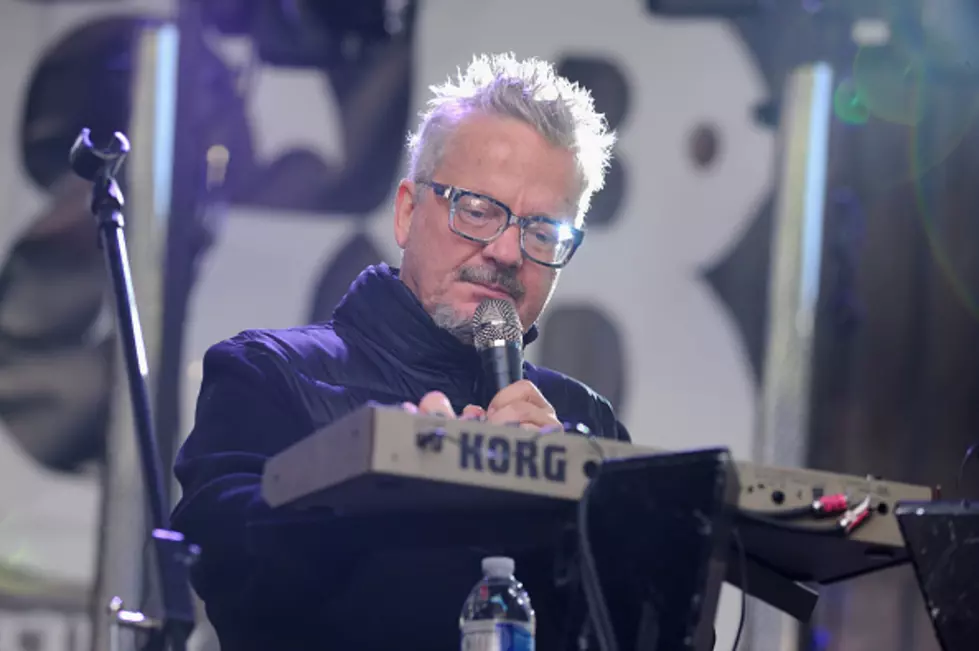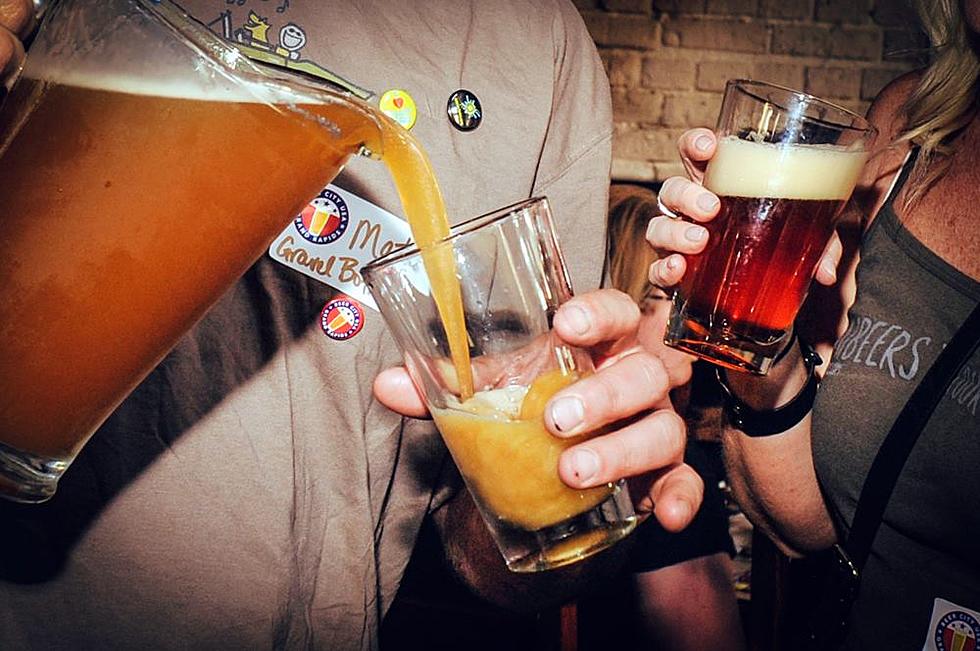
Mark Mothersbaugh Talks Ideas, Art and the Origin of DEVO at ArtPrize
Mark Mothersbaugh is more than the pioneer of one of the seminal bands of the late '70s. He's also a visual artist, sculptor and one of the top movie soundtrack performers in Hollywood.
He spoke at the ArtPrize 8 Hub Wednesday night, and told some great stories about art, the theory of de-evolution and being at the cusp of a new music movement that jump started the '80s.
Back in college at Central Michigan University, one of the two stations I worked at, WINO, which operated literally out of a closet at Thorpe Hall, was notorious for its progressive music shows entitled 'Contraband'. In the late '70s, we were one of a handful of college stations to play DEVO's debut album 'Are We Not Men'. To say it was different from all the other music we played at the time would be an understatement.
But upon looking at their liner notes, and the strange art that accompanied the album, I became a quick fan. The name of their band was a shortened form of de-evolution, the theory that man's mental capacity had peaked, and we were now in a mode of 'de-evolution', and slowly mutating back to animals.
Mark Mothersbaugh was the brain child behind DEVO, and the creative spark behind their odd clothing and hats and masks which permeted their early music and video work. He spoke Wednesday night at a Critical Discourse session about his career in art in music.
Host Adam Lerner penned a book about Mothersbaugh's art called Myopia, and curated a show of his visual art for the Denver Museum of Contemporary Art and he began the show with a retrospective of Mothersbaugh's career, and then Mark was introduced to the full house at the ArtPrize HUB.
Mothersbaugh is a playful character who crawled up on stage, and was often distracted by the corporate art or the plants decorating the stage. Prone to often losing his train of thought, Mothersbaugh was still a gifted, if somewhat digressing story teller, who told of his somewhat astonishing rise from the streets of rust belt Akron to pop fame to one of Hollywood's go-to movie scorers.
Some of the highlights of Mothersbaugh's 90 minute Q and A with Lerner and the audience included:
* How he adhered to Andy Warhol's theory that ideas were more important than the art itself. This taught him to be multi-dimensional, and branchign out into music and movie making in addition to visual art.
* Mick Jagger took one listen to DEVO's version of '(I Can't Get No) Satisfaction' and declared the best version of the song ever. He also thought Jagger was underrated as a lyricist.
* He can remember the day he first got eyeglasses in the second grade, and how it he could now see the tree he kept running into clearly, as well as the rest of the world. He immediately began drawing, which made his teacher take notice and become an ally rather than an enemy.
* In the de-evolution theory, being weird or different meant you were on the cutting edge, not an outcast.
* He is amazed by modern technology and wishes he was twelve years old now because of all the advancements made to music and movie making.
* He told the audience that subversion was a great way to get your message out as an artist. He learned it from listening to ad jingles that took classical music and subverted it to push junk food on people. He told of how we once wrote an ad for an agency and actually added the line 'sugar is bad for you' to the end of an Hawaiian Punch jingle. They never caught on.
* DEVO would get gigs early in their career where they would tell the bar they were a cover band, and then when they showed up, they would play their weird original music and get thrown off the stage.
* The origins of 'Booji Boy' (pronounced Boogie), Motherbaugh's DEVO alter ego, who performed certain songs for the band, including weird monlogues before, during and around the song 'Beautiful World' in concert. The Booji Boy mask is well known to DEVO afficiandos.
* How DEVO was discovered by David Bowie and Brian Eno while performing in New York City, which eventually led to their record deal.
* How he was introduced to writing soundtracks for TV shows and movies by comedian Paul Rubens (better known as his character, Pee Wee Herman), who hired him to write the music for his cult classic TV show, 'Pee Wee's Playhouse'.
* HIs disdain for record companies. He related a story about how the band wanted to cover Lee Dorsey's 'Workin' In A Coal Mine' for their fourth album, New Traditionalists, but the record company said no, because they didn't want to pay the royalties. So the band gave the song to producers for the soundtrack to the 1981 animated film 'Heavy Metal', where it became a hit, causing the executives to release a 7" single of the song.
More From 98.7 WFGR









